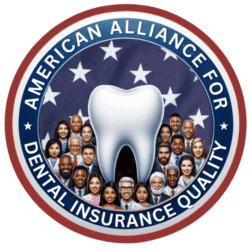This past February, the Massachusetts Dental Society (MDS) and nine other dental organizations submitted identical letters to the MassHealth Dental Program, indicating that DentaQuest, MassHealth’s third-party administrator, has failed to comply with a federal law delineating access to care requirements for Medicaid children. Specifically, the letter points to the use of a non-compliant network adequacy analysis performed by DentaQuest, in violation of 42 USC-1396a (30)(A) (A copy of the letter and attachments are below).

Dr. Mouhab Rizkallah researched and produced the letter, which is signed by nine notable leaders in dentistry, including Dr. Abe Abdulwaheed, President of the Massachusetts Dental Society, Dr. Elon Joffre, President of the Massachusetts Association of Orthodontists, Dr. Derek Zurn, President of the Massachusetts Academy of Pediatric Dentistry, and Dr. Mouhab Rizkallah himself, as President of AADIQ.
“Poor Kids Struggle to Find Dental Care”
“When complied with, children’s Medicaid is the finest insurance program in the world. Sadly, DentaQuest mishandles many provisions of the Medicaid Act, and exposes programs such as the Massachusetts Medicaid agency to federal law violations. The result is that poor kids struggle to find dental care. There is no excuse for this legal noncompliance, and this is consistent with many other patient-harming behaviors we have found DentaQuest responsible for,” says Dr. Rizkallah.
Improper Metric to Determine Network Adequacy
The specific complaint is that DentaQuest’s network analysis improperly uses a distance-to-provider metric instead of the federally mandated “care and services availability” metric to determine network adequacy.
DentaQuest’s access metric is 10 minutes to a general dentist and 30 minutes to an orthodontist/oral surgeon/pedodontist. However, the federal statute 42USC-1396a(30)(A) requires that state programs “…assure that payments are….sufficient to enlist enough providers so that care and services are available under the plan at least to the extent that such care and services are available to the general population in the geographic area.”
The MDS letter states: “MassHealth has replaced ‘care and services’ with ‘minutes to provider.’ Minutes to provider is a useless time-analysis, because it does not identify how long it takes to receive care and services. A patient may be 10-minutes away from a provider, yet months away from a cleaning or other procedure. ‘Care and services’ was the specific language chosen for this law – and must be complied with. The advised way to determine availability of care and services is to annually call MassHealth providers to find out how long it takes to receive care for each service.”
“Quite frankly, “minutes to provider” is an evasive and meaningless metric,” emphasized Dr. Rizkallah. “All state programs must use “care and services availability” to be compliant with federal law. That means every state must determine how much time it takes for a child to get the needed treatment, not just get to the front door of provider who has no time to treat the child.”
Federal Statute Requires Service Comparison to General Population
The MDS letter further states: “….it is insufficient to merely determine ‘care and services’ availability from MassHealth providers. MassHealth must also determine ‘care and services’ availability to the general population (Non-MassHealth providers). The law requires that care and services availability for the two groups are compared to each other. In fact, according to the referenced federal law, it is this comparison that sets the payment rate.”
The cited federal law requires that states ensure that child Medicaid dental services are available “at least” to the same extent for Medicaid patients as for the general public in an area of the state to be considered compliant. “The words ‘at least’ are a powerful choice of words. Legislators clearly wanted poor children, who have higher social determinants of health risk, to have even more access than others,” says Dr. Rizkallah.
The MDS letter stated, “MassHealth must fully comply with the Medicaid Act to receive any federal funds, and pointed out that MassHealth received 10.7 Billion in federal funds in 2022. The letter also pointed to a 2005 federal court decision attachment, which highlighted a federal judge’s conclusion that “States that participate in Medicaid may receive cooperative federal funding if their state plans comply with certain federal criteria.” In that 2005 case, the state argued against full compliance with federal laws, believing that substantial compliance was enough. The judge disagreed and wrote into his decision “the standard to be applied….will be full compliance.”
“The significance of DentaQuest’s noncompliance with 42USC-1396a(30)(A) is not trivial. It puts the state at risk of losing over $10 Billion annually, and it separates poor children from their Medicaid entitlement,” says Dr. Rizkallah.
Request to Implement Secret Shopper Comparison with Rate Increase
The letter concludes with a request that MassHealth implement a secret shopper comparison of Medicaid provider availability of services against non-Medicaid availability of services, with a subsequent Medicaid rate increase to comply with the “at least” mandate in 42USC-1396a(30)(A).
No response to the letter has yet been received.
